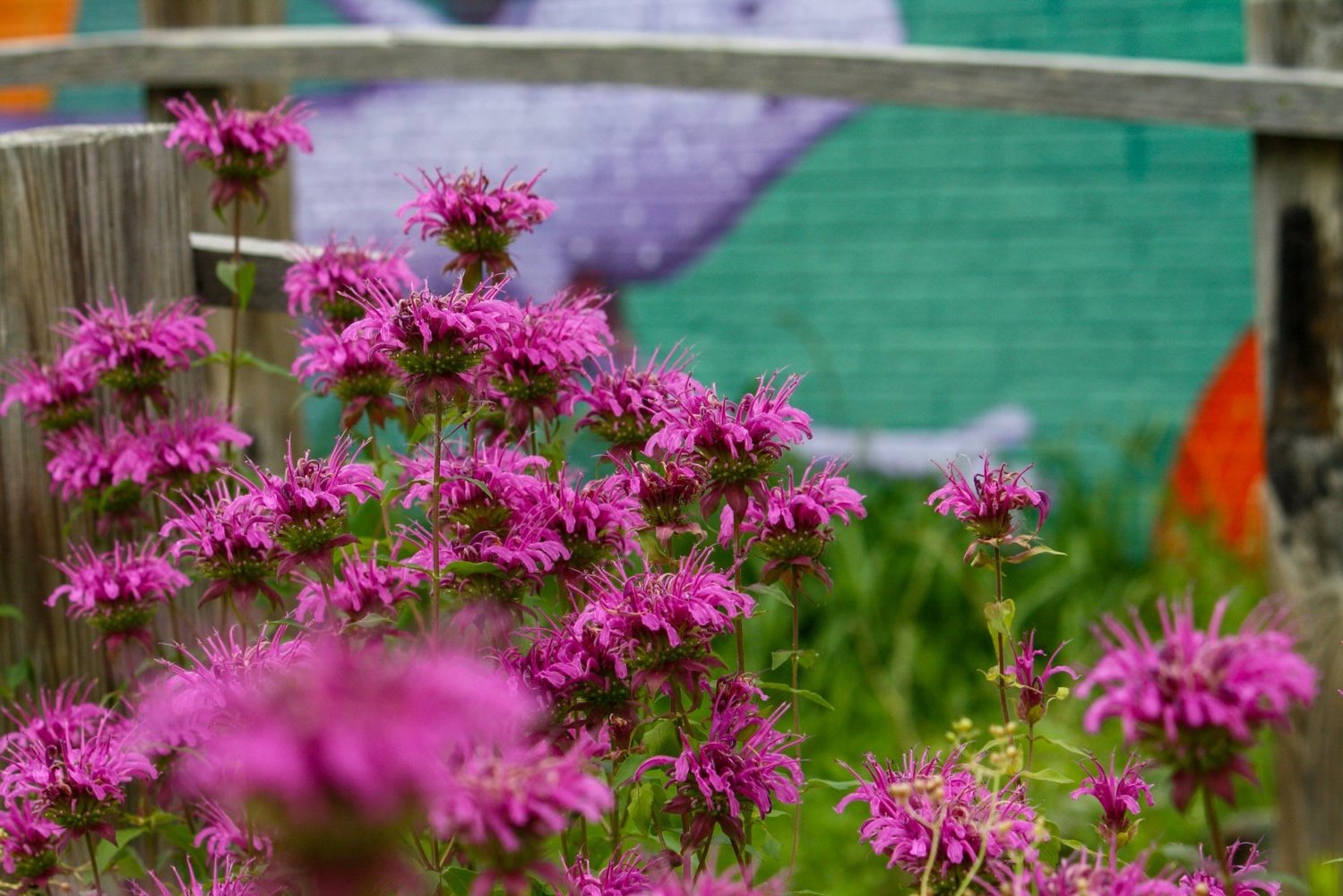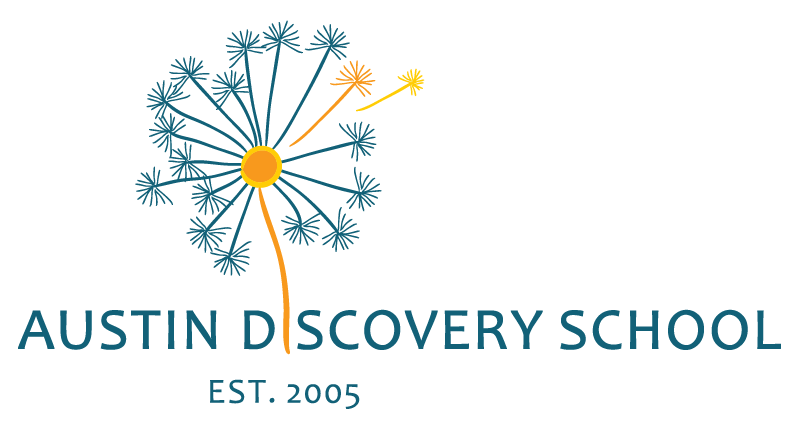
Social Emotional Learning at Austin Discovery School
Austin Discovery School supports the whole child using research-based social emotional practices. The ADS mission clearly states that we are developing socially and emotionally aware, confident, critical-thinkers and problem-solvers through interactive, hands-on lessons and relevant project-based learning. Social Emotional Learning is a core value at ADS.
At Austin Discovery School, we use Conscious Discipline, Positive Behavior Systems/Interventions and Restorative Practices to help our students navigate social emotional learning. These practices allow us to create a safe, caring, and learning environment for all.
Conscious Discipline helps to create a school family with routines, meaningful classroom jobs, safe place, and equator to work at conflicts, and specific strategies for calming and working out peer conflicts.
Restorative Practices provide the framework for meaningful circles in the classroom as well as providing a space for restitution and accountability. All of these programs/philosophies work together to create social emotional learning experiences for each classroom.
TRIBES and Drama Based Instruction offer lesson plans and cooperative games to further build our school family. These activities help us to work collaboratively and cooperatively in small groups (tribes) or as a whole classroom.
Positive Behavior Interventions and Supports (PBIS) is a framework or approach for assisting school personnel in adopting and organizing evidence-based behavioral interventions into an integrated continuum that enhances academic and social behavior outcomes for all students. PBIS IS NOT a packaged curriculum, scripted intervention, or manualized strategy. PBIS IS a prevention-oriented way for school personnel to (a) organize evidence-based practices, (b) improve their implementation of those practices, and (c) maximize academic and social behavior outcomes for students. PBIS supports the success of ALL students.

Conscious Discipline
Conscious Discipline (created by Dr. Becky Bailey) helps to create the school family with routines, meaningful classroom jobs, a safe place, and specific strategies for reducing stress and working out peer conflicts. The program is based on teaching skills instead of punishing children, and in large part, requires that the acting adult be conscious of his or her actions and reasons for reactions and in turn model and teach the child the same.
Through Conscious Discipline and Restorative Practices, we teach resolution and believe that a problem is an opportunity to teach. We also believe that a child may need help or guidance in navigating the situation they are in. We believe in teaching, and helping children actively practice skills as conflicts emerge.
This does not, however, mean that our social emotional program does not provide consequences. When consequences are needed, our first step is to impose consequences that are meaningful and logically related to the situation (You knocked over the paint because you were running, you may clean it up). Many daily issues can be resolved in this way. These incidents may or may not be reported to parents if they are truly minor and age appropriate.
Our classrooms are set up with a safe place or calm corner for students who need a chance to reset and refocus. Teachers at ADS are trained and supported in Conscious Discipline techniques.

Restorative Practices
Restorative Practices provide the framework for meaningful circles in the classroom as well as providing a space for restitution and accountability. All of these programs/philosophies work together in tandem to create the social/emotional program at Austin Discovery School. In more serious situations regarding serious disruption to the learning environment or physical harm, the student may be referred to the Social Emotional Program Director, who will work with the teacher and student to resolve the situation through the use of Restorative Practices.
What are Restorative Practices?
Restorative justice (restorative practices/discipline in school settings) is a philosophy as well as a set of practices that helps us know how to respond to problems as they arise. Restorative discipline also helps create school communities where problems are less likely to arise in the first place and less likely to be repeated when they do happen.
Restorative Practices is looking at student behavior with a different lens. Instead of looking at what rule was broken, restorative practices look at what harm was caused to the relationship and what needs to happen to repair the harm? In Restorative Practices, the primary focus is on the relationships between students, teachers, families, and whole community instead of just a rule violation. Restorative Practices focus on accountability, community, and skill development.
There are a series of questions asked to help guide the process:
What happened?
What were you thinking of at the time?
What have you thought about sense?
Who has been affected by what you have done and in what way?
What do you think you need to do to make things right?
To help those harmed by another’s actions:
What did you think when you realized what had happened?
What impact has this incident had on you and others?
What has been the hardest thing for you?
What do you think needs to happen to make things right?

Tribes and Drama Based Instruction
TRIBES and Drama Based Instruction offer lesson plans and cooperative games to further build our school family. These activities help us to work collaboratively and cooperatively in small groups (tribes) or as a whole classroom. Four agreements are honored:
A = Act Responsibly
D = Do it with Respect
S = Safety is Everybody’s Job
Positive Behavior Interventions and Supports
Positive Behavior Interventions and Supports (PBIS) is how we have developed a framework at Austin Discovery School to help govern student behavior in the whole areas on campus. PBIS also provides a framework for Response to Intervention (RTI) when it comes to looking at student behavior at a Tier 1, 2, and 3 support level. All rules and guidance come through our belief system that we want to create students who are safe, respectful and responsible. You will see signs around campus that show our acronym ADS:
Attentive Listening
Appreciations/No Put Downs
Mutual Respect
The Right to Participate/Right to Pass

RESTORE: Supporting Classrooms and Students
RESTORE is located in the Cypress Treehouse and can be used by any student K-8. RESTORE IS supported by the SEL team. This is a space where students may come for a variety of reasons. Some of these reasons may be:
A place for a student to take a break to regroup and refocus before heading back to the classroom
A calming break (not to exceed 10 mins) to draw, use fidgets or clay
Crisis De-escalation
Time machine/Reflections as needed for conflicts
Lunch bunch (by invitation)
Social Skills groups (by invitation)
Restorative chats/Restorative circles to problem solve conflicts that fall out of the scope of the classroom (this is for conflicts that aren’t easily solved or having trouble getting to the root of the problem)
Students can take a calming walk outside to through the butterfly garden to the RESTORE room, where they receive additional support from our SEL staff.
RESTORE is a general education support but are open to all students. To access RESTORE, each student will come with a memo describing their need. RESTORE IS a place for both students and teachers to feel supported. RESTORE is not a consequence or a threat. We want students to thrive in their classroom environments so coming to RESTORE is seen as an extension to the classroom not as a way to exclude a student from their classroom community. We are partners working together to help the student feel a part of their classroom community.
The Five Competencies of Social Emotional Learning
Collaborative for Academic, Social, and Emotional Learning (CASEL) is the think tank behind the movement of Social Emotional Learning. They have come up with a wonderful definition and five competencies.
Social and emotional learning (SEL) is the process through which children and adults acquire and effectively apply the knowledge, attitudes and skills necessary to understand and manage emotions, set and achieve positive goals, feel and show empathy for others, establish and maintain positive relationships, and make responsible decisions.
SEL programming is based on the understanding that the best learning emerges in the context of supportive relationships that make learning challenging, engaging and meaningful.
Social and emotional skills are critical to being a good student, citizen and worker; and many risky behaviors (e.g., drug use, violence, bullying and dropping out) can be prevented or reduced when multiyear, integrated efforts are used to develop students' social and emotional skills. This is best done through effective classroom instruction; student engagement in positive activities in and out of the classroom; and broad parent and community involvement in program planning, implementation and evaluation.
-
The ability to accurately recognize one’s emotions and thoughts and their influence on behavior. This includes accurately assessing one’s strengths and limitations and possessing a well-grounded sense of confidence and optimism.
Explicit skills taught:
Regulating one’s emotions
Managing stress, Self-control
Self-motivation
Stress management
Setting and achieving goals
At ADS, we use Conscious Discipline techniques in the classroom to help students to effectively solve their own problems with their peers. We provide a safe place in the classroom for students to regulate their own emotions. With Restorative Practices, we guide students through a list of questions to help them to identify thoughts and problem solve coming up with a plan of action. We also teach explicit skills for students to learn to manage their own behavior/emotional state.
-
The ability to regulate one’s emotions, thoughts, and behaviors effectively in different situations. This includes managing stress, controlling impulses, motivating oneself, and setting and working toward achieving personal and academic goals.
Explicit skills taught:
Regulating one’s emotions
Managing stress, Self-control
Self-motivation
Stress management
Setting and achieving goals
At ADS, we use Conscious Discipline techniques in the classroom to help students to effectively solve their own problems with their peers. We provide a safe place in the classroom for students to regulate their own emotions. With Restorative Practices, we guide students through a list of questions to help them to identify thoughts and problem solve coming up with a plan of action. We also teach explicit skills for students to learn to manage their own behavior/emotional state.
-
The ability to take the perspective of and empathize with others from diverse backgrounds and cultures, to understand social and ethical norms for behavior, and to recognize family, school, and community resources and supports.
Explicit skills taught:
Perspective taking
Empathy
Respecting diversity
Understanding social and ethical norms of behavior
Recognizing family, school, and community supports
In our classrooms at ADS, we define and teach school wide norms such as Act Responsibly, Do it with Respect, and Safety is Everyone’s Job developed through our Positive Behavior Interventions and Supports (PBIS). We create Respect Agreements as a classroom community and work to create a Classroom Family with Conscious Discipline and Restorative Practices. We have a Peace Center for students to learn social skills, regulate emotions and energy, and to solve conflicts with peers/adults.
-
The ability to establish and maintain healthy and rewarding relationships with diverse individuals and groups. This includes communicating clearly, listening actively, cooperating, resisting inappropriate social pressure, negotiating conflict constructively, and seeking and offering help when needed.
Explicit skills taught:
Building relationships with diverse individuals and groups
Communicating clearly
Working cooperatively
Resolving Conflicts
Seeking help.
In our classrooms at ADS, we build relationships and connections with students using Conscious Discipline techniques to create a School Family. We use TRIBES and Drama Based Instruction to help build our classroom community using cooperative games and lesson plans. We use Restorative Practices by using circles to create community and responsive circles to problem solve conflicts.
-
The ability to make constructive and respectful choices about personal behavior and social interactions based on consideration of ethical standards, safety concerns, social norms, the realistic evaluation of consequences of various actions, and the well-being of self and others.
Explicit skills taught
Considering the well-being of self and others
Recognizing one’s responsibility to behave ethically
Basing decisions on safety, social, and ethical considerations
Evaluating realistic consequences of various actions
Make constructive, safe choices for self, relationships, and school.
In our classrooms at ADS, all of our explicit skills and curriculum comes together to help the student to become an invested member of the community so that the student is safe, responsible, and respectful to all.



